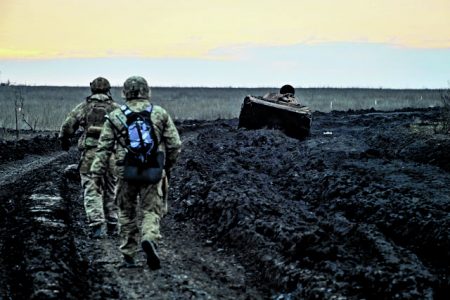The elections finally came, as most expected. They did not, however, create any major enthusiasm.
The development coincided with the tragic incident at sea in the middle of the inhospitable Adriatic Sea, with the endless agony and loss of dozens of our compatriots, while evoking connotations about the upcoming national shipwreck.
In any case, the people were very thoughtful on Monday and the MPs from all wings were rather sullen, instead of happy for the developments and the upcoming electoral battle that will take place in four weeks.
Anyone closely following the moods of public opinion will sense the clenching and anxiety. They also expect that we will perhaps experience one of the most polarizing electoral battles since the restoration of Democracy.
Most accept that Tsipras has the lead, but they are not convinced by the answers he has to offer.
The educated urban world senses the gaps and is not convinced by SYRIZA’s ability to negotiate with the foreign parties and is concerned for the worse to come. Furthermore, the people did not want elections.
While there are many who think they have nothing to lose, there are just as many who are afraid of losing everything.
The national elections are not the same as the European elections, voting will not be taken lightly.
The dilemmas in these elections will seem real and the people will be called upon to choose clear solutions.
Samaras cancelled SYRIZA’s strategy by opting to suspend negotiations with the troika. SYRIZA believed that it would govern in an environment of secured funding.
They expected that Samaras would complete the negotiation, he would take a number of measures and would then head to the elections totally discredited, without any hope.
Now the responsibility lies with Tsipras, who is called upon to provide convincing answers to the dilemmas of our times.
The president of SYRIZA invokes the needs of the helpless and downtrodden, but he does not address the questions of the urban world, which remains suspicious towards the rhetoric of conflict with partners and creditors.
Based on all of the above the developments over the next four weeks will be harsh and will not allow the many smaller forces much room.
The common belief is that anyone caught between New Democracy and SYRIZA will literally be crushed. The greater the fragmentation, the greater the losses.
PASOK, the upcoming party of Papandreou, the River and other initiatives taking place in the center left will find themselves caught in the vice of polarization and are in danger of being left outside Parliament.
Particularly for the greater center left, there is the precedent of the second elections of June 2012, when center left voters supported Mr. Samaras en masse. It is not unlikely that they will do the same now as well, under pressure from the divisive dilemmas.
The Communist Party, Independent Greeks and the neo-Nazi Golden Dawn are also under threat of shrinking, not to mention the extra-parliamentary leftist parties, which will likely have the rug pulled under their feet, just like in the European elections.
In any case, the current electoral battle is expected to be divisive, deeply polarizing and definitely indecisive.
Should things turn out this way, then there is no guarantee that SYRIZA will maintain its current lead.
Unless a major wave of social support for Mr. Tsipras develops in the election period, which seems rather unlikely at present.
In this respect, the next few weeks are expected to stand out and be absolutely confrontational.
Antonis Karakousis





